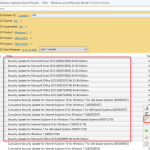Boost Your System Programming With Cutting-Edge Software Tools: Power Up Your Code With Essential Software Tools In System Programming!
Software Tools in System Programming
Introduction
Hello Readers,
1 Picture Gallery: Boost Your System Programming With Cutting-Edge Software Tools: Power Up Your Code With Essential Software Tools In System Programming!

Welcome to this informative article on software tools in system programming. In today’s digital era, system programming plays a crucial role in developing and maintaining computer systems. To efficiently carry out system programming tasks, programmers rely on various software tools that assist them in writing, debugging, and optimizing code. In this article, we will explore the different software tools used in system programming and understand their significance in ensuring smooth and efficient development processes.
Before we dive into the details, let’s first define what system programming entails. System programming involves creating software that directly interacts with the hardware components of a computer system. It requires a deep understanding of hardware architecture, operating systems, and low-level programming languages. Now, let’s explore the various software tools that aid system programmers in their day-to-day work.
Table: Software Tools in System Programming
Tool
Description

Image Source: theengineeringprojects.com
Integrated Development Environments (IDEs)
IDEs provide a comprehensive set of tools for writing, compiling, and debugging code.
Text Editors
Text editors are lightweight tools that allow programmers to write and modify code efficiently.
Compilers
Compilers translate high-level programming languages into machine code, which can be directly executed by the hardware.
Debuggers
Debuggers help programmers identify and fix errors, allowing for efficient troubleshooting.
Performance Analysis Tools
These tools analyze the performance of system programs, helping programmers optimize their code for better efficiency.
Version Control Systems
Version control systems track changes in code and enable collaboration among team members working on the same project.
What is Software Tools in System Programming?
Software tools in system programming refer to the applications and utilities that assist system programmers in developing, testing, and maintaining computer systems. These tools provide a range of functionalities, including code writing, debugging, performance analysis, and version control.
System programmers rely on these tools to streamline their workflow, ensure code correctness, and optimize system performance. Let’s dive deeper into the details of each software tool and understand their specific roles and benefits.
Integrated Development Environments (IDEs)
IDEs are comprehensive software tools that provide an integrated environment for developing software. They typically include a text editor, a compiler, a debugger, and other development tools. IDEs offer features like code completion, syntax highlighting, and project management, making it easier for system programmers to write, test, and debug their code efficiently.
Some popular IDEs used in system programming include:
Visual Studio
Eclipse
Xcode
Text Editors
Text editors are lightweight tools that allow programmers to write and modify code. Unlike IDEs, text editors focus solely on providing a clean and efficient interface for code editing. They are highly customizable and often preferred by experienced programmers who prefer a minimalistic approach to coding.
Some popular text editors used in system programming include:
Vim
Emacs
Sublime Text
Compilers
Compilers are software tools that translate high-level programming languages into machine code. They analyze the source code, perform optimizations, and generate executable files that can be directly executed by the computer’s hardware. Compilers play a vital role in system programming as they ensure code correctness and efficient utilization of system resources.
Some commonly used compilers in system programming include:
GNU Compiler Collection (GCC)
LLVM
Intel C++ Compiler
Debuggers
Debuggers are essential tools for system programmers, allowing them to identify and fix errors in their code. Debuggers provide features like breakpoints, watchpoints, and step-by-step execution, enabling programmers to examine the state of variables and memory during program execution. They help in efficient troubleshooting and ensure the correctness of system programs.
Some popular debuggers used in system programming include:
GDB
Valgrind
WinDbg
Performance Analysis Tools
Performance analysis tools are used to measure and analyze the performance of system programs. These tools provide insights into resource utilization, bottlenecks, and potential optimizations. They help system programmers identify areas for improvement and optimize their code to enhance system performance.
Some commonly used performance analysis tools include:
perf
Intel VTune Amplifier
Valgrind’s Callgrind
Version Control Systems
Version control systems (VCS) help system programmers manage changes to their codebase and facilitate collaboration among team members. VCS tracks modifications, allows for easy rollback to previous versions, and provides mechanisms for merging code changes. It ensures code integrity, simplifies collaboration, and enables efficient project management.
Some popular version control systems used in system programming include:
Git
Subversion (SVN)
Mercurial
Advantages and Disadvantages of Software Tools in System Programming
Like any other technology, software tools in system programming come with their own set of advantages and disadvantages. Let’s explore both sides of the coin.
Advantages
Efficiency: Software tools automate repetitive tasks, saving time and effort for system programmers.
Code correctness: Debuggers and compilers ensure that the code is error-free and follows best practices.
Collaboration: Version control systems enable seamless collaboration among team members, ensuring code integrity and efficient project management.
Performance optimization: Performance analysis tools help programmers identify bottlenecks and optimize system programs for better efficiency.
Code reusability: IDEs and text editors offer features like code completion and snippets, promoting code reusability and reducing development time.
Disadvantages
Learning curve: Some software tools have a steep learning curve, requiring time and effort to master.
Dependency on tools: System programmers may become overly reliant on tools, hindering their ability to understand low-level concepts and troubleshoot without assistance.
Resource consumption: Certain tools, especially IDEs, may consume significant system resources, impacting overall performance.
Compatibility issues: Different tools may have compatibility issues with specific hardware or software configurations.
Tool limitations: No single tool can cater to all system programming requirements, and programmers may need to use multiple tools to accomplish their tasks.
Frequently Asked Questions (FAQ)
Q: Are software tools necessary for system programming?
A: Yes, software tools are essential for system programming as they assist programmers in various tasks such as code writing, debugging, and performance analysis.
Q: Can I use multiple software tools simultaneously?
A: Absolutely! System programmers often use different tools together to maximize their productivity and efficiency.
Q: Are software tools platform-dependent?
A: Some software tools are platform-specific, while others are cross-platform. It’s crucial to choose tools that are compatible with your target platform.
Q: Are there any free software tools available for system programming?
A: Yes, many software tools used in system programming are open-source and freely available for use.
Q: Can I develop system programs without using any software tools?
A: While it’s technically possible, using software tools significantly simplifies the development process and ensures code correctness and efficiency.
Conclusion
In conclusion, software tools play a vital role in system programming, assisting programmers in various aspects of code development, debugging, and optimization. From IDEs to text editors, compilers to debuggers, performance analysis tools to version control systems, each tool serves a unique purpose and contributes to the overall efficiency and effectiveness of system programming.
As a system programmer, it is essential to familiarize yourself with these tools and leverage them to streamline your workflow and deliver high-quality system programs. Remember, the right combination of software tools can significantly enhance your productivity and contribute to the success of your projects.
So, go ahead, explore these software tools, and unlock your full potential as a system programmer!
Final Remarks
Dear Readers,
Thank you for taking the time to read this article on software tools in system programming. We hope you found it informative and gained valuable insights into the significance of these tools in the development and maintenance of computer systems.
Please note that while software tools provide numerous advantages, they should not become a crutch. It is essential to strike a balance between relying on tools and understanding the underlying concepts of system programming. By doing so, you can become a proficient system programmer capable of tackling complex challenges and delivering robust solutions.
Remember to keep exploring, learning, and adapting to the ever-evolving field of system programming. Continuous growth and improvement are key to staying ahead in this dynamic industry.
Best regards,
Your Friends at SystemProgrammingInsights.com
This post topic: Software Tutorials


